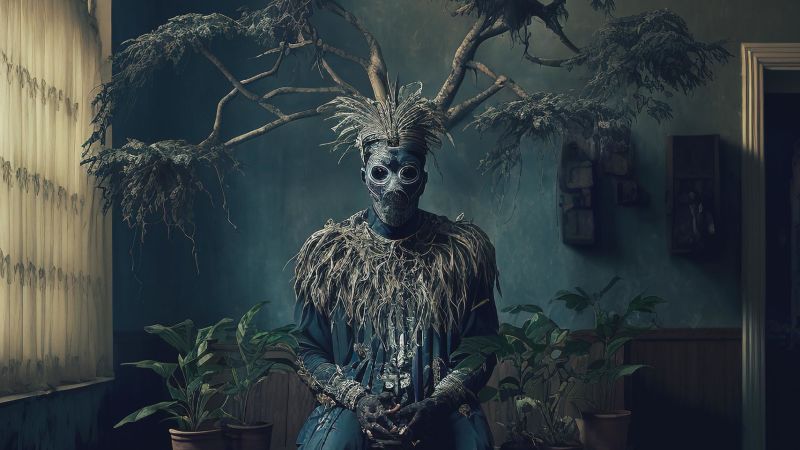
‘Westernization is not the answer’: Artist Àsìkò explores Yoruba culture through mythology
CNN
Nigerian-born artist Ade Okelarin goes by the name of “Àsìkò” and uses his work to examine aspects of Yoruba traditions.
Appreciating cultural heritage and using it to imagine a better future: that’s one of the goals of self-taught photographer and visual artist Ade Okelarin. Professionally, he goes by the name of “Àsìkò” – the word for “time” or “the moment” in Yoruba, one of the languages in his home country of Nigeria. Drawing on aspects of traditional Yoruba culture has been an important aspect of his creative journey. Through two recent series titled “Guardians” and “Of Myth and Legend,” he explores the iconography of Yoruba deities, or “Òrìshàs.” In Yoruba history, the Òrìshàs were sacred beings with divine powers, and the belief in them continues beyond West Africa, having been transmitted by slaves and their descendants in the Caribbean and South America, among other places. But growing up in Nigeria in the 1980s and 1990s, where mainstream education around indigenous beliefs was not common, Okelarin says his journey as an artist has been about deconstructing previous knowledge. “The work is about exploration and understanding the things I was not taught in school,” Okelarin said, “and creating a space for me to understand heritage and creating something with legacy.” His portraits and images of Òrìshàs combine traditional photography with artificial intelligence (AI), digital editing techniques and collaging, and are Okelarin’s way of drawing connections between various global mythologies, through which, he says, we are all linked in our deep-rooted stories. While researching the projects, he noticed similarities between elements of Yoruba and Western mythology, such as the Yoruba deity Sango and Norse god Thor, both of whom are deities of thunder and lightning, and the Òrìshà Olokun, who represents the sea, like her Greek counterpart Poseidon.

The US Centers for Disease Control and Prevention has been tracking abortion trends for decades, but this year’s report — including some of the earliest federal data reflecting the effect of significant changes to abortion access nationwide – has been pushed back until spring amid turmoil at the federal agency.












